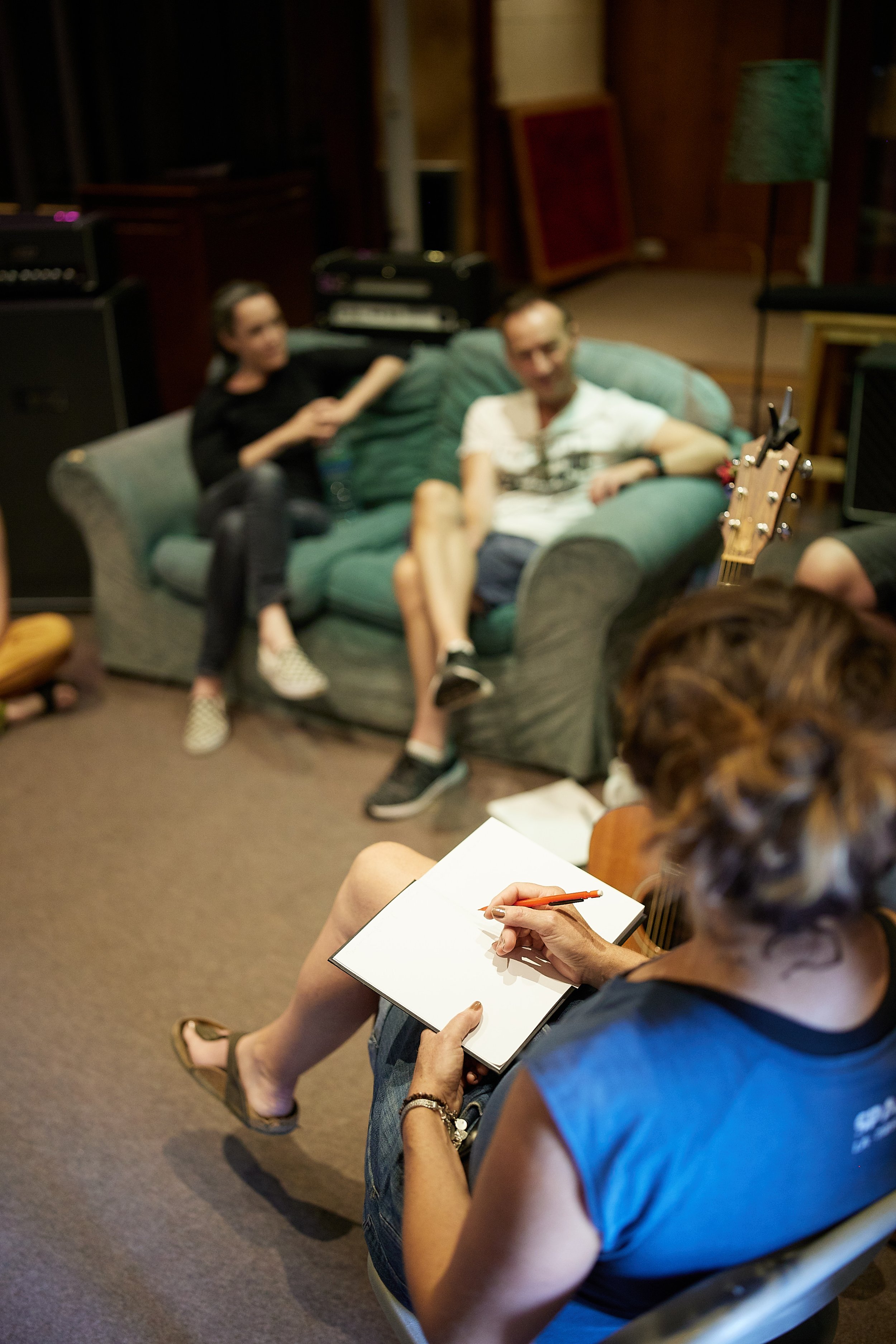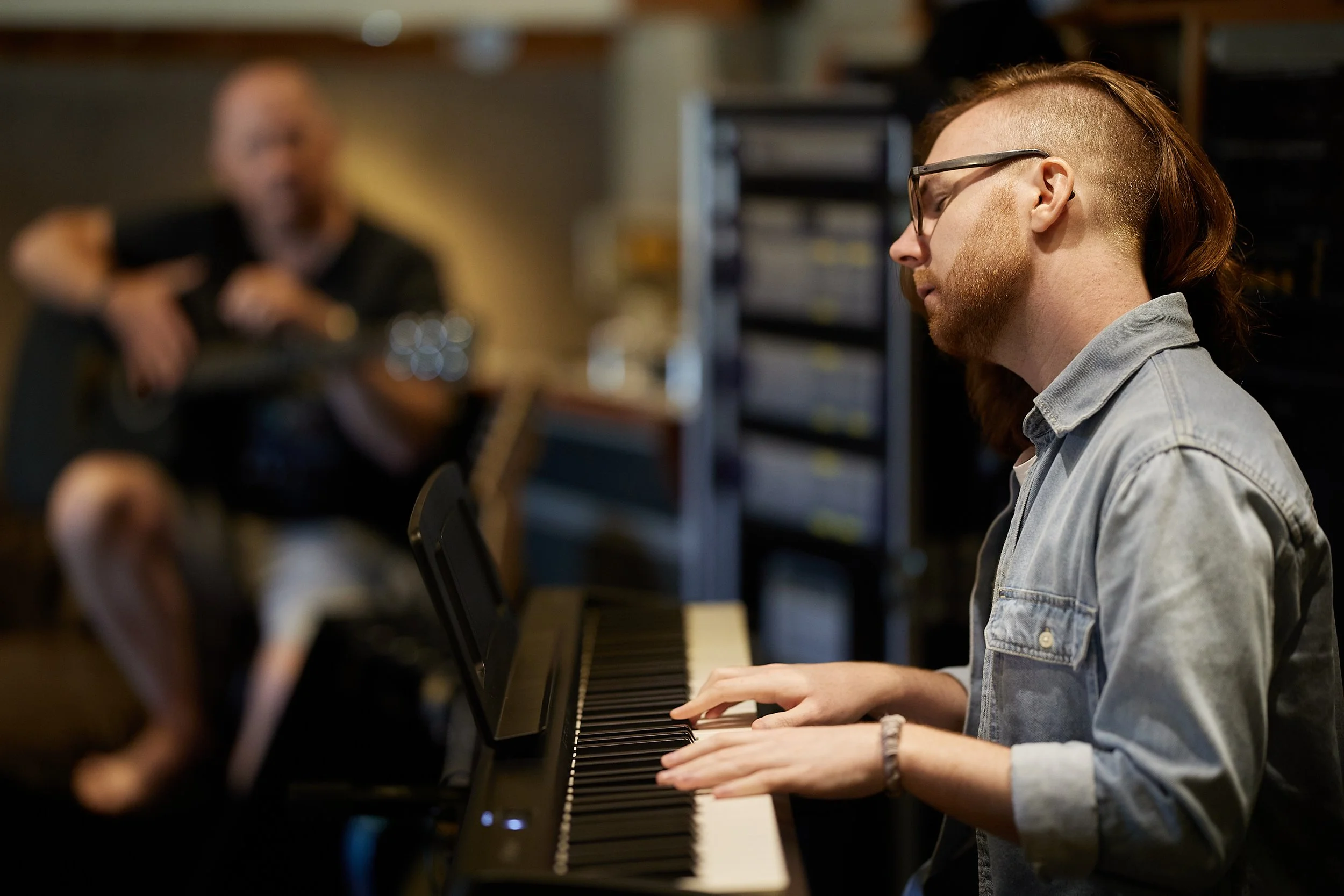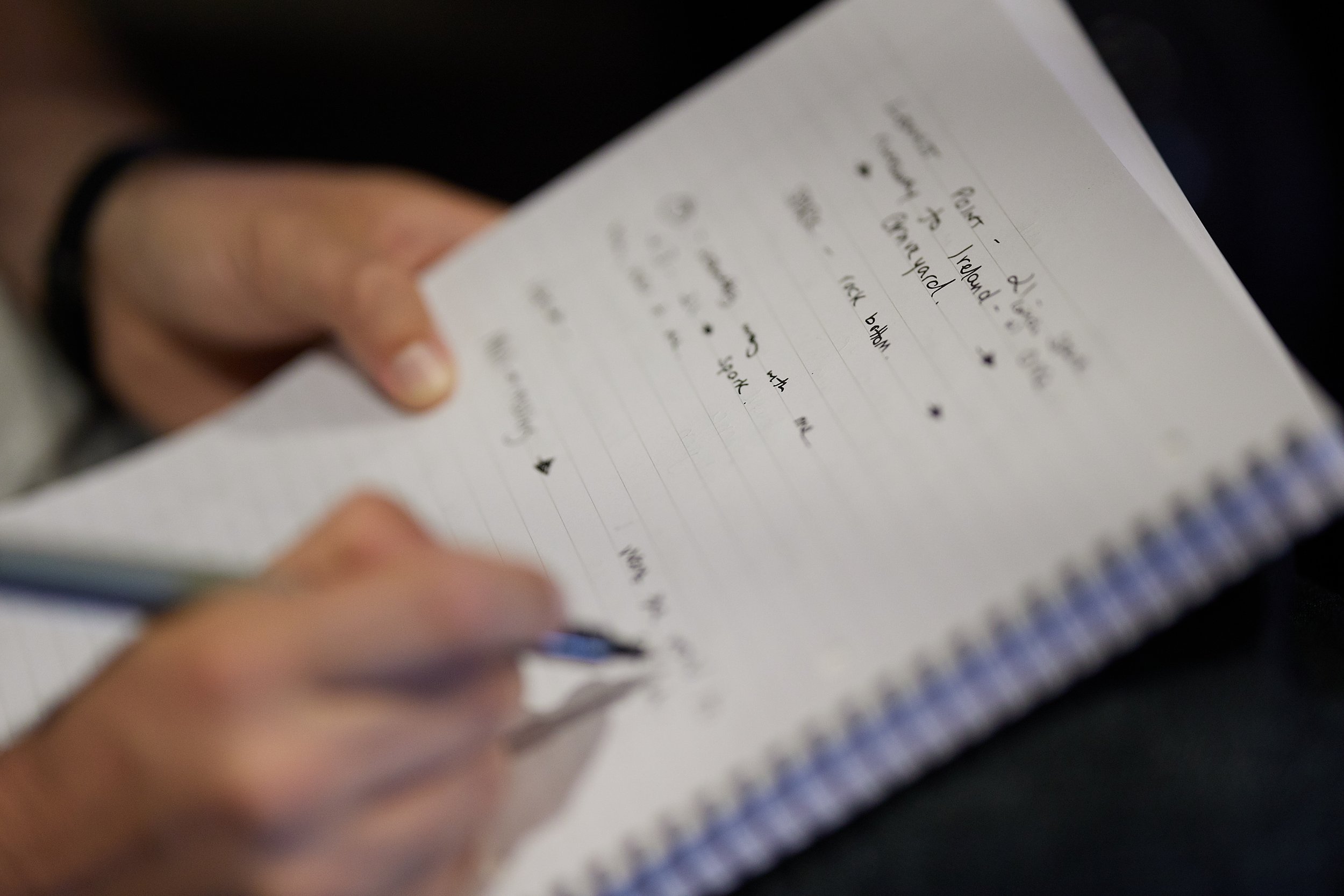What to bring to the songwriting session? Be Prepared.
If you are an artist who relies on co-writers and producers to help create your musical vision, there are many ways that you can prepare yourself for these extremely important songwriting sessions.
It is paramount that as the Artist you are capable of directing the session towards your vision and needs, in a clear, concise and time effective manner. It is so easy to go off-piste when you are in a studio… time just seems to disappear, so it’s your job to stay focussed & keep the vision.
Here are some survival techniques and some top tips for staying on track:
1. Reference Material.
Choose 3 songs that you either wish you had written, or that have certain characteristics that demonstrate the kind of song you want to write.
Starting a writing session by listening to reference songs is a great way to begin the flow of ideas, connect with your collaborators and get a feel for the sound of the space you are writing in.
It’s important to feel comfortable and calm, and often listening to music at the start of a session can equalise the space.
The true beauty of music is that it connects people. It carries a message, and we, the musicians, are the messengers
– Roy Ayers
2. Where is the song going to go?
If it needs to fit in an album, EP or LP, how do you want it to sound? Is it going to be played live? What tempo, key or feel do you want it to have? All these decisions made at the start of the session will help focus the writers into a common direction.
3. Learn some basic music production technical terms.
As artists it is our responsibility to understand the basics of music production so that we can share our vision clearly and feel a sense of autonomy and control over the sound that is produced. It can be so frustrating for the producer, and the artist, when this crucial piece of the puzzle is missing. Communication is key. Even if you don’t understand the technical processes required to achieve a certain sound you can communicate this clearly by using the reference songs at the start of the session. Any producer worth their fee will be able to find a similar sounding vocal effect or create an even better one that suits your voice.
Some standard production terms that will help you communicate with your producer are:
EQ (equalizer) is a tool that lets you adjust the volume of the individual frequencies within an audio source. Rather than a volume fader, which would allow us to adjust the overall volume, an equalizer allows us to just turn up or turn down individual frequencies and individual elements of that sound.
Reverb provides space and depth to your mix and can enhance the sound of your vocals quite dramatically.
Delay is sometimes called echo. Along with reverb, it's one of the main ways we add a sense of space and depth to a mix.
The BPM is a desired tempo is communicated as beats per minute.
Double tracking vocals is when you record a duplicate take on a different track. This can add richness and character to a vocal, and panning those doubles creates width and depth in a mix.
Panning is the act of placing or moving a sound anywhere in the stereo field of a stereo playback system.
Vocal Drop in is when you record a small section of a vocal pass, usually to fix a small part of an otherwise good take.
Compression is a music production tool used to control the dynamic range of a sound: to decrease the difference in volume between its loudest and softest parts. This can be done by making the loudest parts quieter (downward compression) or the quietest sounds louder (upward compression).
Vocal comping describes the process of combining multiple vocal takes into one “supertake” that has the best parts of each. This is called a “composite track,” or comp for short. Many instruments can be comped on studio tracks, but vocals are the most common since they are the most central aspect of most popular songs.
4. Draw a mind-map or write a song-story in preparation for the session.
If there is something in particular that you want to say, or a story you want to tell, then give yourself a few minutes before the session just to write it down… anything… let it flow. Some of the best lyrics I’ve written have been stream-of-consciousness. You may only use one or two lines, or it could lead your team in a totally different direction, but it’s worth having something prepared, especially if you have a strong feeling about an event, or a person that you need to understand. These emotions can be the start of an incredible song.
5. Don’t be scared to say no.
Sometimes we end up down rabbit holes or chasing idea’s that don’t work. It’s difficult to be the one in the room to say no, but as the artist you need to feel like the music is serving your needs and creative vision.
I have been in writing sessions where the Featured Artist has been led by the producer, rather than by their own vision. This happens sometimes when the artist isn’t clear about what it is that they need. I have also worked with artists who have been very clear and said ‘no’ easily. One in particular dealt with this by saying “I like the idea, but it is not what I would sing”. Straight, fair, and respectful. Having said that, if you work with the right team then they will know your style and sound… end of story. That’s the dream team.
If you’ve got a really strong concept, then it’s easy to write. Whereas if you’re not sure what the true story is, it’s bloody hard.
– Shelly Pool (singer/songwriter) Alisha’s Attic
6. Be authentic.
Stay true to who you are. You have everything inside you that is needed to create an amazing song.
Trust it and your collaborators will trust it too.
Join us for Pro7ect 2023 at Rockfield Studios 18th - 26th July. Apply before 01.01.23 for the early bird rate.
“I was expecting to write a song, or more, a day and I did. I expected to meet some cool people and I did… perfect!”
Now in our 8th year, Pro7ect songwriting retreats at the world famous Rockfield Studios, is the only residential songwriting retreat in the UK offering music production in the room and an opportunity to collaborate with internationally acclaimed writer/producers.
Pro7ect Headline producers include Stew Jackson (Massive Attack), Youth (Sir Paul McCartney, The Verve, The Orb), Roni Size (Reprazent), John Fortis (Razorlight, Ellie Goulding), Iain Archer (Snow Patrol, James Bay), Andrew Levy (Brand New Heavies) and Mercury Prize Winner Talvin Singh OBE.
Pro7ect Session Notes is an insider’s guide to real life songwriting, collaboration, and music production experiences from Pro7ect Songwriting Retreats Creative Director Lisa Fitzgibbon.
Pro7ect is proudly sponsored by Prism Sound.
Pro7ect 2019: Elle Exxe (Featured Artist): in a songwriting session at Pro7ect songwriting retreat UK. Photo by Ian Wallman.
I look forward to sharing with you in this monthly column songwriting & music production experiences, advise, tips and insider secrets that I’ve discovered along my Pro7ect Collaboration Navigation adventure.
Take risks,
Lisa Fitz
Pro7ect Session Notes is an insider’s guide to real life songwriting, collaboration, and music production experiences from Pro7ect Songwriting Retreats Creative Director Lisa Fitzgibbon.
Links to media mentioned in this blog: https://www.pro7ect.com/session-notes
For more information and to apply for Pro7ect songwriting retreats and Masterclasses: www.pro7ect.com
Pro7ect is proudly sponsored by Prism Sound.
Images: by Ian Wallman





